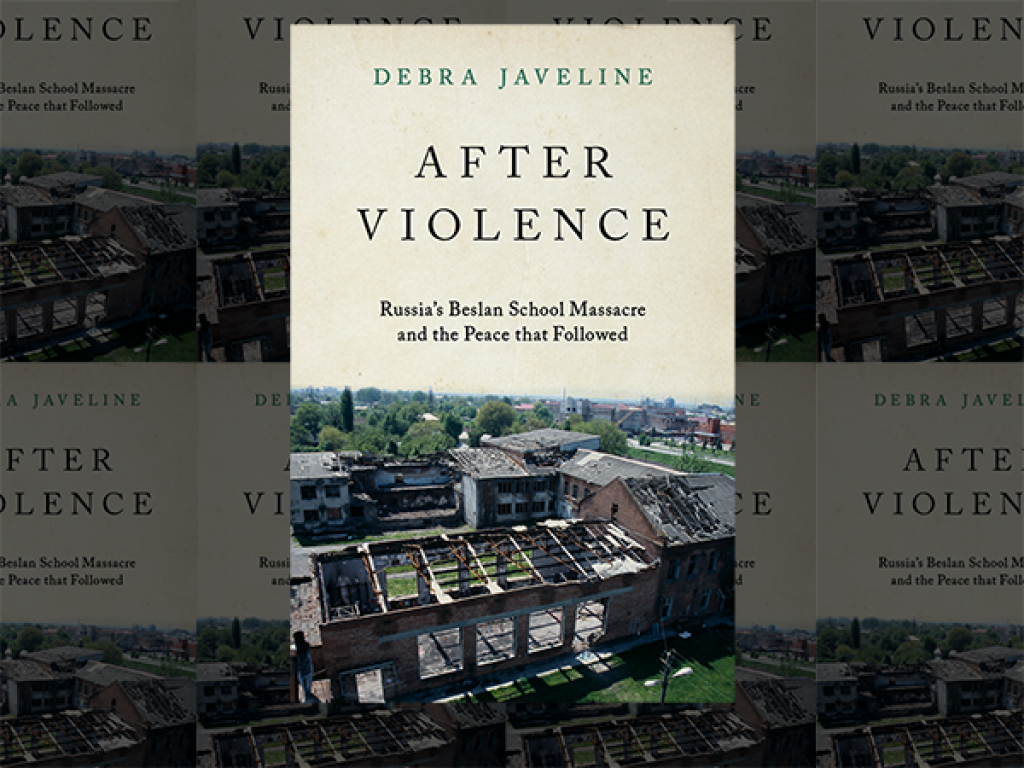Registration required. Please note that all attendees must follow Columbia’s COVID-19 Policies and Guidelines. Columbia University is committed to protecting the health and safety of its community. To that end, all visiting alumni and guests must meet the University requirement of full vaccination status in order to attend in-person events. Vaccination cards may be checked upon entry to all venues.
Join us for a meeting of the New York-Russia Public Policy Series, co-hosted by the Harriman Institute at Columbia University and the New York University Jordan Center for the Advanced Study of Russia.
This event will be held in person at Columbia University in room 1219 of the International Affairs Building (Marshall D. Shulman Seminar Room). RSVP to attend.
Please join the Jordan Center for the Advanced Study of Russia and the Harriman Institute for a book talk with Debra Javeline, author of After Violence: Russia’s Beslan School Massacre and the Peace that Followed, and Russian journalist Elena Milashina. Moderated by Elise Giuliano.
Starting on September 1, 2004, and ending 53 hours later, Russia experienced its most appalling act of terrorism in history, the seizure of School No. 1 in Beslan, North Ossetia. Approximately 1,200 children, parents, and teachers were taken hostage, and over 330 —nearly one of every hundred Beslan residents— were killed, hundreds more seriously wounded, and all severely traumatized. After Violence is the first book to analyze the aftermath of such large-scale violence with evidence from almost all direct victims. It explores the motivations behind individual responses to violence. When does violence fuel greater acceptance of retaliatory violence, and when does violence fuel nonviolent participation in politics? The mass hostage taking was widely predicted to provoke a spiral of retaliatory ethnic violence in the North Caucasus, where the act of terror was embedded in a larger context of ongoing conflict between Ossetians, Ingush, and Chechens. Politicians, journalists, victims, and other local residents asserted that vengeance would come. Instead, the hostage taking triggered unprecedented peaceful political activism on a scale seen nowhere else in Russia. Beslan activists challenged authorities, endured official harassment, and won a historic victory against the Russian state in the European Court of Human Rights. After Violence provides insights into this unexpected but preferable outcome. Using systematic surveys of 1,098 victims (82%) and 2,043 nearby residents, in-depth focus groups, journalistic accounts, investigative reports, NGO reports, and prior scholarly research, After Violence offers novel findings about the influence of anger, prejudice, alienation, efficacy, and other variables on post-violence behavior.
Debra Javeline is Associate Professor in the Department of Political Science at the University of Notre Dame and a fellow of the Kroc Institute for International Peace Studies, Kellogg Institute for International Studies, Nanovic Institute for European Studies, Russian and East European Studies Program, and Environmental Change Initiative. Her research interests include mass political behavior, survey research, Russian politics, sustainability, environmental politics, and climate change. She focuses on the decisions of ordinary citizens, whether in response to violence or climate impacts, and she is currently exploring coastal homeowner motivations to take action to reduce their risk from rising seas, hurricanes, and other hazards.

